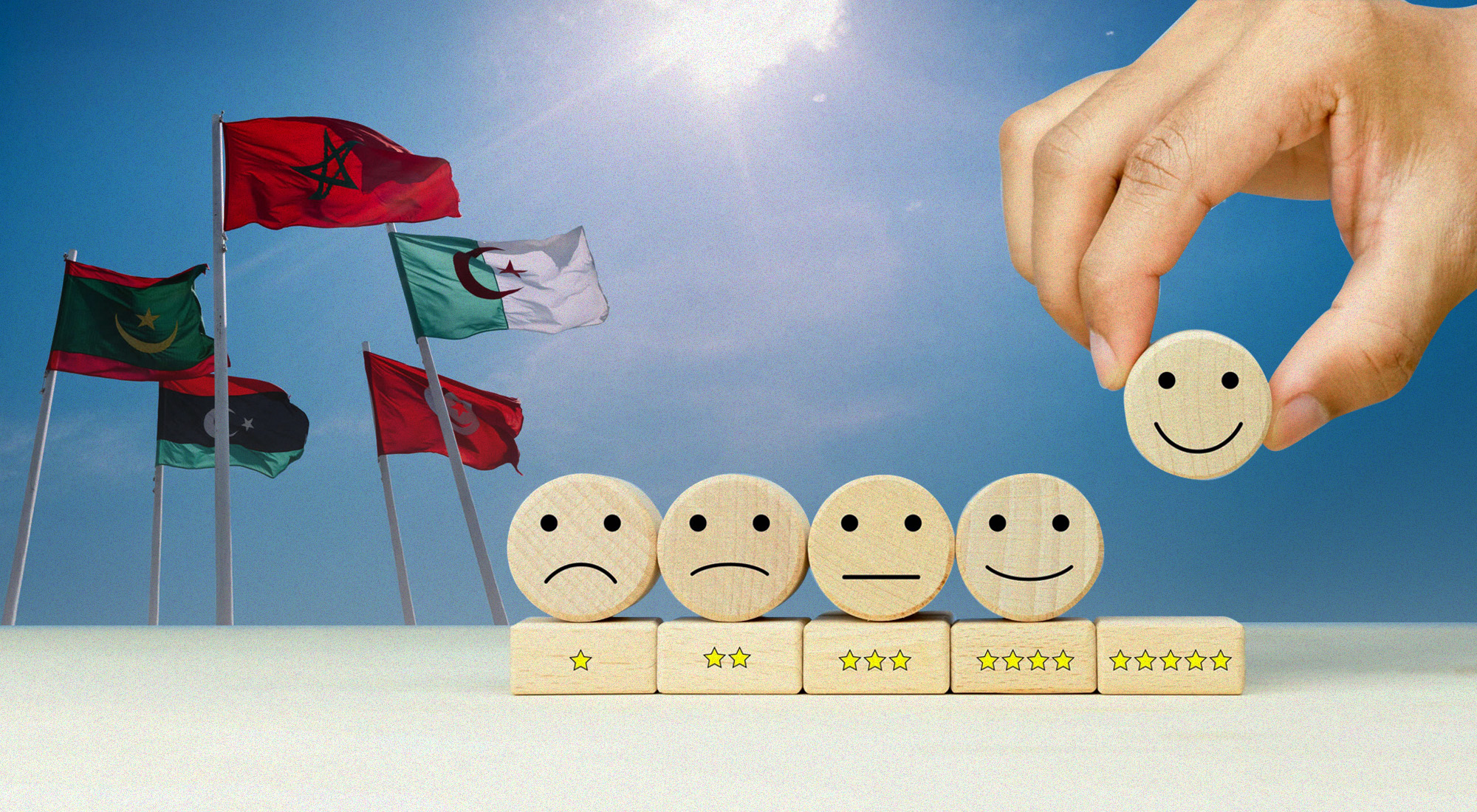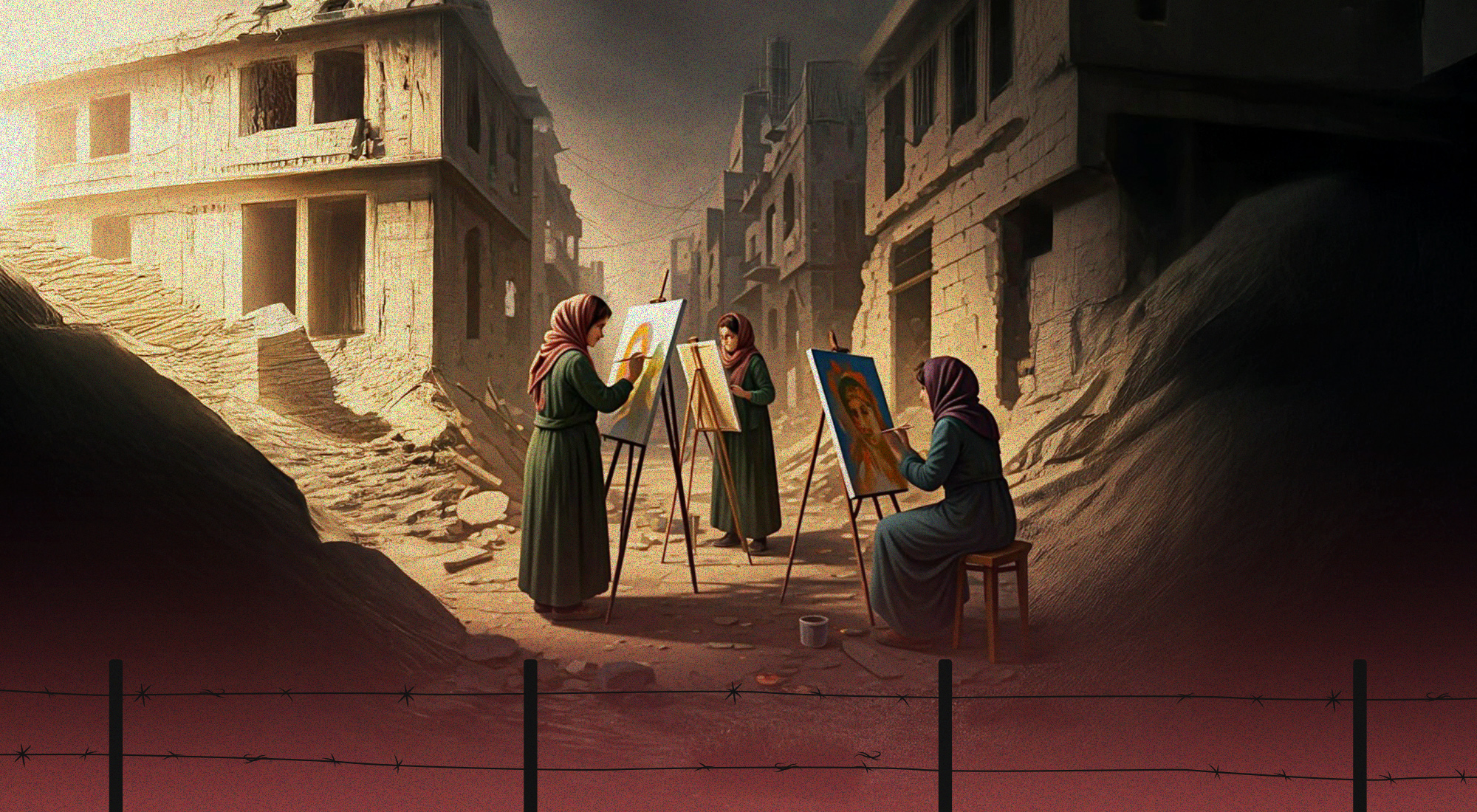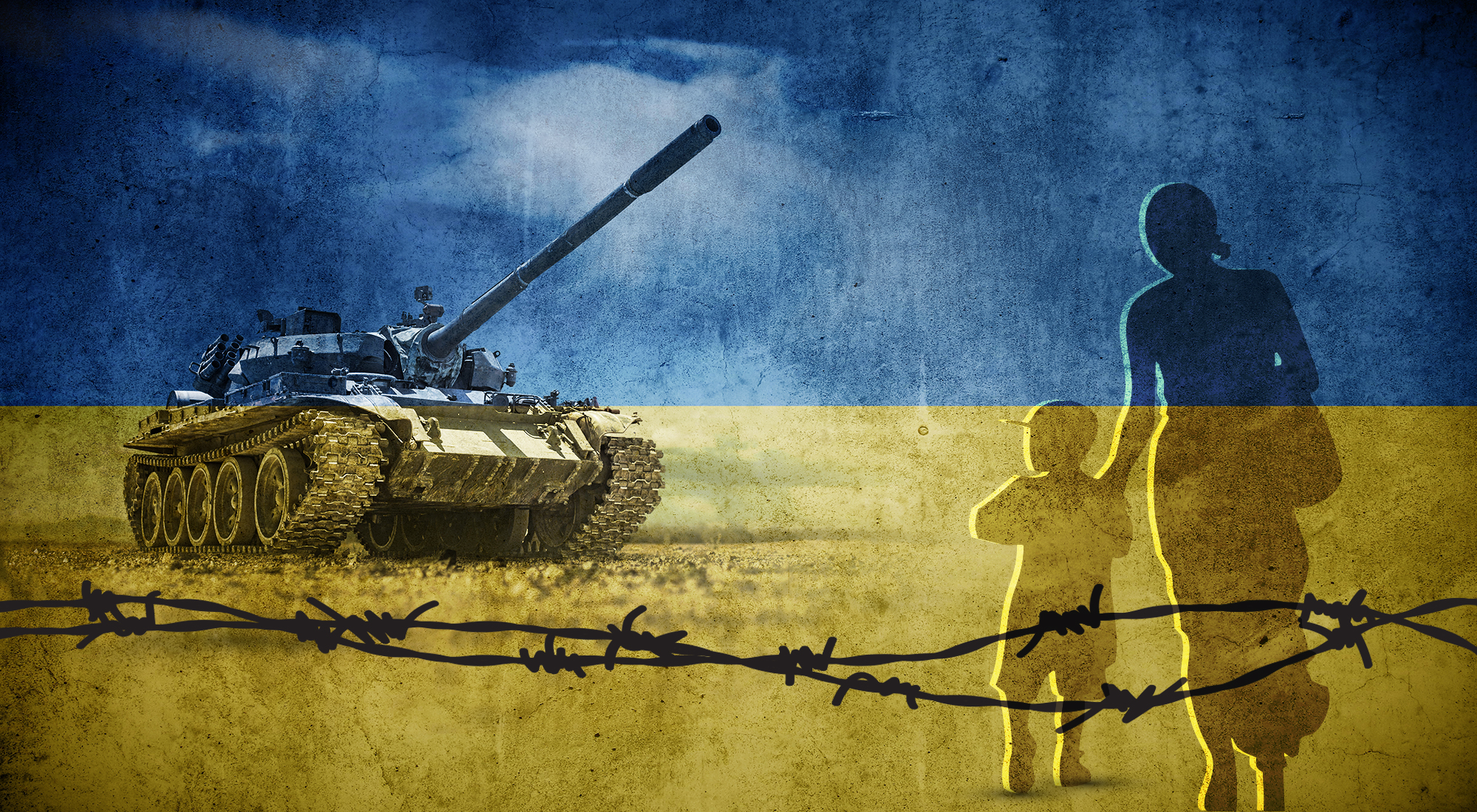For decades, the US-Iran relations have been fraught with mistrust and tension. Calls or attempts for dialogue or rapprochement to settle contentious issues have yielded no results and made little progress. With the spread of the Covid-19 pandemic, the world expected relative calm between the two countries. A collective fight was the need of the hour as both the countries were among the most affected by the pandemic and had faced most difficulties in containing its various repercussions. However, the unyielding nature of US-Iran relations has persisted.
Similarities between the US and Iran response to Covid-19
Iran and the US are among the most affected by the pandemic and have followed almost similar ways to deal with it. The similarities in this regard are as follows:
1- Weak initial response: Despite warnings issued by the WHO about the danger and the rapid spread of the virus, the two countries underestimated it and did not take the necessary measures to counter it. Iran consequently became the epicenter of coronavirus in the Middle East, spreading it to neighboring countries.[1]
Similarly, the US initially underestimated the danger posed by the virus. On February 27, 2020, President Trump claimed that the number of cases diagnosed in the country “is not more than 15” and “within a couple of days it is going to be down to close to zero, that is a pretty good job we have done.” A month later, however, the number of infected cases and deaths multiplied, taking the US to the top of the affected countries’ list. The Trump administration has come under fierce criticism for mishandling the situation and information available with the various intelligence agencies about the pandemic and its rapid spread from China.[2]
2- Politicization for election purposes: Instead of taking quick steps to cordon off the areas hit by the virus, and warning the public, Supreme Leader Ali Khamenei blamed “Iran’s enemies.” He accused them of trying to put people off voting in February 2020 election by exaggerating the threat of the novel coronavirus.
In the US, the pandemic has become one of the campaign issues for the presidential election scheduled for November 2020. The Democratic presidential nominee, Joe Biden, stepped up his criticism and spoke about the “disastrous mistakes” committed by Trump in managing the crisis. He also blamed Trump for his failure to accurately assess the pandemic’s effects and deal with its dangerous threat to the Americans, leading to catastrophic results.
The US House of Representatives Speaker, Democrat Nancy Pelosi, sharply criticized President Trump’s plan to lift restrictions imposed to control the spread of the virus, saying that the President’s handling of the pandemic “does not respect science and facts.”[3] Trump responded to these criticisms by accusing the Democrats of using Covid-19 as an election “hoax”.[4] He also blamed the collapse of the US health system on the previous Obama administration, which did not improve healthcare for the American people.
3- Pandemic as a tool of conflict: Although the US announced at the beginning of the pandemic that it was ready to provide humanitarian assistance to Iran to help address the outbreak, the latter refused the offer. Supreme Leader Ali Khamenei described the pandemic as an “American conspiracy” to justify Tehran’s rejection of Washington’s initiatives to send medical supplies. Iran claimed that Covid-19 was being used as “biological warfare” by the US to target Iran. This proved to be an unfounded claim echoed by Iran’s senior security and military services officials.
Khamenei also said that he refused any help from the US to fight the virus because the US was accused of having developed the virus. He addressed the US officials by saying: “You are accused of having created this virus. Some forms of the virus are even particular to Iranian genes and thus produced to target Iranians based on their genetic makeup”, he said, without giving any evidence.[5]
Such statements suggest that mutual suspicion and apprehension overwhelm the relations between the two countries. Even during health and humanitarian crises, when nations are supposed to leave their differences aside and join forces to combat such crises together, it is not the case for Washington and Tehran. Iran’s claims of biological warfare are viewed as an attempt to cover up the failure in managing the crisis and blaming Washington for it, given the mounting public anger inside Iran.
Meanwhile, Iran also sought to use the circumstances to put pressure on the US and the international community to force the lifting of sanctions imposed on it and to get help in the fight against the pandemic. President Hassan Rouhani even sent an open letter to the American people imploring them to help ease the sanctions imposed on the crippled Iranian economy. “The victims of the sanctions and Covid-19 are not the country’s political camps, but the ordinary people,” he is quoted to have said. Rouhani asked the American people to urge their government to lift the sanctions imposed on Iran.[6]
Iranian Foreign Minister, Javad Zarif, also accused the US of supplanting its “economic terrorism” with “medical terrorism” by refusing to lift the sanctions following the outbreak. He, however, said: “Despite the sanctions, Iran has made significant progress against the virus, thanks to its own resources and support from some countries.”[7]
This incessant rhetoric suggests that Iran seeks to urge the international community to help lift the sanctions considering them to be the main hindrance in the fight against Covid-19. Iran also takes advantage of the differences between Washington and its European allies to persuade the international public opinion. It reiterates that lifting of sanctions is essential for humanitarian considerations and will save the Iranian people from the pandemic.[8]
On the other hand, the US also used the pandemic as a conflict tool. It rejected Tehran’s demands for the lifting of sanctions and sent decisive messages. Several American officials said it would continue its policy of “maximum pressure” on Iran to prevent the country from selling its crude oil. They will also continue efforts to isolate Tehran from the global financial system, curb its nuclear and missile activities, and curtail its hostile acts destabilize regional security.
Statements made by US Secretary of State Mike Pompeo clearly expressed this American position. In March 2020, he said: “Senior Iranians lied about the Wuhan virus outbreak for weeks. The Iranian leadership is trying to avoid responsibility for their grossly incompetent government.” “We have an open humanitarian channel to facilitate legitimate transactions even while ensuring that our maximum pressure campaign denies terrorists money,” he said.[9] The statement indicates that the policy of maximum pressure on the Iranian regime will continue.
On March 26, 2020, the US Treasury Department imposed fresh sanctions on Iran by blacklisting 15 individuals and five entities to support the Islamic Revolutionary Guards Corps (IRGC), its Quds Force, and transfer lethal aid to Iran-backed militias in Iraq. It also accused them of selling Iranian oil, which is banned by the US sanctions.[10]
Many officials in the Trump administration believe that sustained policy of maximum pressure on Iran may lead to regime change due to increased public resentment and mass protests in the Iranian streets.[11]
Coronavirus and escalation of tension
It seems that the Covid-19 pandemic has escalated the tensions between the two countries instead of de-escalating it. Many thorny issues lie behind this, most notably:
1- IMF loan to help fight the pandemic: In March 2020, the Central Bank of Iran requested a $5 billion loan from the IMF’s Rapid Financing Initiative, an emergency program set up to help countries tackle sudden disasters and crises. In April 2020, President Rouhani warned that “there should be no discrimination in approving requests,” alluding to the US opposition to the loan.[12] Reports indicated that Washington blocked the Iranian request arguing that the loan might not be used on addressing the country’s public health crisis.
The US State Department confirmed this in a statement saying that “the world’s leading state sponsor of terrorism is seeking cash to fund its adventurism abroad, not to buy medicine for Iranians. The regime has a long history of diverting funds allocated for humanitarian goods to their terrorist proxies.” A US Treasury Department official said: “the Iranian Central Bank, which is currently under sanction, has been a key factor in financing terrorism across the region and we have no confidence that funds would be used to fight the coronavirus.”[13]
2- Renewed skirmishes in the Gulf waters:
In recent weeks, tension broke out between the Iranian Navy and American ships when an order was issued to Iran’s armed forces to identify and track several US commercial vessels in the Gulf of Oman. In an alert that appeared aimed at Iran, the US Navy issued a warning to all vessels in the Gulf to maintain a distance of at least 100 meters from US warships or risk being “interpreted as a threat and subject to lawful defensive measures.”[14]
In May 2020, clashes escalated between the two countries when Iran decided to send an oil shipment to Venezuela, which angered the US. A senior Trump administration official said the US was considering measures in response to Iran’s shipment. Washington considered the shipment a violation of its sanctions on Iran, which bans commercial dealings with the Venezuelan state oil company PDVSA.
In a letter to the UN Secretary-General, Antonio Guterres, the Iranian Foreign Minister Javad Zarif said any American action against the shipment should be considered an act of piracy and would have consequences. He warned that “this hegemonic gunboat diplomacy seriously threatens freedom of international commerce and navigation and the free flow of energy.”[15]
The escalation of tension between Washington and Tehran in the Gulf waters stoked fears among many observers of a possible new “tanker war” similar to what happened during the Iran-Iraq conflict in the 1980s. This is even more likely as Iran is adamant on violating American sanctions while the US insists on imposing maximum pressure on it.[16]
Observers maintain that Iran’s escalatory steps are attempts to send a message to the US and the international community that Tehran has many pressure tactics to threaten global energy and economic security. This even includes the closure of the Strait of Hormuz and the disruption of international navigation.[17]
3- Nuclear and ballistic missile program issues:
Iran’s nuclear program remains a thorny issue between Tehran and Washington since the withdrawal of the Trump administration from the nuclear deal in 2018. Subsequently, Iran took measures to lessen its commitment to the agreement, exerting pressure on the European countries, especially France, Germany, and the UK, and persuade the US to return to the deal. However, it appeared that Iran took advantage of the world’s pre-occupation with the fight against Covid-19. It resumed its nuclear activities in some locations and refused to give the International Atomic Energy Agency (IAEA) access to suspected sites. However, it succumbed to American and international pressure and agreed, in June 2020, to let the agency visit those locations.[18]
Despite the Covid-19 pandemic and Iran’s inability to contain it, the Islamic Revolutionary Guards Corps (IRGC) announced on April 22, 2020, that it had launched its first military satellite “Noor-1” by Qassed space-launch vehicle into orbit at an altitude of about 425 kilometers.
The launch of Noor-1 angered Washington, which saw it as a confirmation of the need to tighten sanctions against Iran. US Secretary of State Mike Pompeo said Tehran needed to be held accountable for breaching the UN Security Council Resolution 2231 (2015), which called upon the country to desist for up to eight years from working on ballistic missiles designed to deliver nuclear weapons. Meanwhile, President Trump ordered the US Navy to sink any Iranian ships or fast boats that come close to American warships in the Gulf or threaten them.[19]
The launch of the military satellite confirms fears that Iran’s ballistic missile program constitutes a threat to regional and international peace and security. It refutes Tehran’s repeated allegations that its space programs are only for civilian and peaceful purposes. This also explains the world’s anxiety about this program and many European countries’ call to Iran to stop all activities related to the development of ballistic missiles designed to deliver nuclear weapons.
In response to this deceptive Iranian behavior, Washington is leading international diplomatic efforts to prevent the termination of the arms embargo against Iran, which was stipulated in resolution (2231) that followed the announcement of the nuclear deal between Iran and P5+1 on July 14, 2015. The embargo is scheduled to terminate in October 2020. Washington believes that an end to this embargo will threaten regional security and stability.
Iran responded by saying the US is no longer party to the nuclear deal after its withdrawal two years ago. Iran also threatens to take aggressive options if the Trump administration succeeds in garnering international support for its position in this regard. This indicates that there is a new crisis looming, which may intensify in the coming months.[20]
Washington is also putting pressure on Germany, France, and the UK as these countries have been involved in negotiations with Iran from the beginning of negotiations that culminated in the nuclear deal. It also seeks to convince China and Russia to support extending the embargo on Iran.
On April 29, 2020, US Secretary of State Mike Pompeo said that “Washington is considering all options to extend the arms embargo.” He was referring to a new draft resolution emphasizing that the US is still a partner in the nuclear deal, as is still committed to the international resolutions preceding it. Perhaps the US may be preparing to use this in the next stage to boost the possibility of extending the embargo or exert pressure on countries that may make some deals with Iran in this respect.[21]
The US has not ruled out a re-imposition of all UN sanctions on Iran if the UN Security Council fails to extend the arms embargo. The US Special Representative for Iran, Brian Hook, said that Washington would ensure the arms embargo remains. According to him, the US has drafted a Security Council resolution and will press ahead with diplomacy and build support.[22]
4- The American presence in Iraq: While the first round of strategic talks held on June 11, 2020, between Iraq and the US set a framework to organize the US troops in the country, Washington pledged to continue reducing the number of US troops in Iraq. The Iraqi government also renewed its commitment to protecting the Washington-led coalition troops against ISIS.[23] However, the main obstacle to the implementation of this framework lies in the Iranian-backed militias, which are trying to thwart any agreement on the US presence in Iraq.
The US presence in Iraq is one of the bargaining chips used in managing the conflict between the US and Iran. The US views it as an effective tool to pressure Iran and curb its expansionist policies in the region. Tehran is well aware that any attempt to threaten the interests of the US or of its allies in the region will be met with a decisive response.[24] On the other hand, Iran always sees the US presence in Iraq as a useful pressure tool to use in bargaining with the US. It even encourages its affiliated militias to target the American bases in Iraq.
Iran’s exploitation of the US American presence in Iraq is evident in the escalating activities of the Iranian-backed militias following the first round of the US-Iraq strategic talks. These militias launched Katyusha rocket attacks on American interests in Iraq, in flagrant defiance of the Kazemi government, which reiterated its commitment to protecting the American forces. The Iranian-backed Shiite forces reject any further presence of the US in Iraq and demand the withdrawal of foreign troops from Iraq in line with the Iraqi parliament’s decision on January 5, 2020.[25]
US-Iran relations: Expected scenarios
In light of the above, several possible scenarios emerge for US-Iran relations:
- A continued impasse in relations is possible given the persistence of the sticky issues between the two countries and their divergent views on how to solve them. This is the most likely scenario due to the following two factors:
- The world’s pre-occupation with the fight against the Covid-19 pandemic and the absence of any shared political will between Washington and Tehran settle their differences.
- President Trump’s focus on the presidential election in November 2020 is another factor. President Trump does not want to get his administration involved in a foreign crisis because it may negatively impact his approval rating at home. The same applies to Iran, which seems to take up a “strategic patience” policy hoping for the end of the Trump administration and the advent of a new Democratic administration that returns to the nuclear deal and eases “maximum pressure.”
- Military escalation, in the form of renewed skirmishes between the Iranian navy and the American ships in the Gulf waters and targeting American bases in Iraq by the Iran-linked militias, is also in the realm of possibilities. However, based on past years’ experience, these skirmishes would not develop into an open military confrontation between the two countries, due to the following factors:
- The US’s regaining of its deterrence power after the killing of Qasem Soleimani, commander of Iran’s Islamic Revolutionary Guard Corps (IRGC) Quds Force in January 2020, sent a resolute message that the US is serious about following up on its threats.
- Iran’s possession of some trump cards which enable it to threaten American interests in Iraq and the region, besides its repeated threats to close the Strait of Hormuz and disrupt navigation cannot be ignored entirely. The US understands this and takes it into account while drafting a response to Iran.
- The two countries are well aware that any military escalation will cause tremendous human and material costs, which they cannot afford. So, they are likely to try and avoid any uncalculated and potentially uncontrollable escalation.
- In light of the positive messages sent by both the countries in the last few months, a cautious rapprochement between the US and Iran has been the silver lining. This includes the US announcement that it was ready to help Iran fight the Covid-19 pandemic and swap of prisoners between the two countries. On June 4, 2020, Iran released Michael White, a US Navy veteran who has been detained in Iran since 2018. In exchange, the US released Majid Taheri, an Iranian-American doctor who was accused of violating the US sanctions.The Trump administration sees the prisoner swap as a positive indication of negotiating and reaching an agreement with Tehran.[26] Many Democratic Party officials and moderate members of the Republican Party believe in diplomacy as an effective way to settle contentious issues with Iran.[27]
However, this scenario seems unlikely, not only because most of the talks and negotiation initiatives have failed since Trump came to power in January 2017 but also due to the dominance of conservatives in Iran who deeply oppose any concessions to the US concerning the nuclear deal.
The Iranian regime is gambling on the possibility of Trump losing in the upcoming presidential election. It also hopes for changes in the international system in the post-Covid-19 era in favor of a more multilateral world that will see the decline of the American influence[28] and the rise of other world powers, that support Iran, as co-leaders of the international system.
Conclusion
It is inconceivable that the Covid-19 pandemic will lead to possible changes in the course of the US-Iran relations in the short term, as these relations hinge on solving contentious issues between the two nations. Given the complexity of these issues and the divergent views of the two countries on them, the likeliest scenario is that the relations will remain in their current deadlock. The relationships may swing up and down, and between escalation and de-escalation, until the results of the November 2020 presidential election come out. The outcome of the polls will ultimately determine the course of these relations.
References
[1] How has Iran Become A Dangerous Epicenter of Coronavirus in the Middle East, Sky News Arabia, February 24, 2020 [in Arabic], at https://bit.ly/30QATqB
[2] Hisham Milhim, Trump Fails in Coronavirus Crisis Management Domestically and Externally, Arab Gulf States Institute in Washington, March 27, 2020 [in Arabic], at https://bit.ly/2Ydhlek
[3] Coronavirus: Why Some Have Some Countries Succeeded and Others Failed in Tackling the Pandemic, BBC, April 19, 2020 [in Arabic], at https://bbc.in/2VmTAid
[4] Nancy Cook, Trump Wants to Defeat Coronavirus — And Make Sure He Gets Credit, politico, 22/3/2020, at https://politi.co/30UhKUL.
[5] Khamenei Sticks to Conspiracy Theory to Reject US Aid, Asharq Al-Awsat newspaper (London), issue (15091), March 23, 2020 [in Arabic].
[6] Khamenei Implores the American People to Ease Sanctions, Middle East Online, March 21, 2020 [in Arabic], at https://bit.ly/2YLuSIT
[7] Coronavirus: What is the Truth about Iran Blaming the US Sanctions for Hampering its Efforts to Curb the Pandemic Outbreak in it? BBC, April 18 2020 [in Arabic], at https://bbc.in/30WW6Pw.
[8] Brie Stimson, Iran’s Leader Points to Coronavirus as Reason for US to Lift Sanctions, Fox News, March 21, 2020, https://fxn.ws/2AIhYU1
[9] Jonathan Marcus, Does Pandemic offer US and Iran Chance for Partial Reset? BBC, March 19, 2020, at https://www.bbc.com/news/world-middle-east-51948510.
[10] Pompeo: Iran is the Greatest Threat in the Region and we will Continue to Pressure, Al-Ain News Portal (Abu Dhabi), May 20, 2020 [in Arabic], at https://bit.ly/37J5uI7
[11] Mark Fitzpatrick, How can the United States Support Iran’s Response to The Coronavirus and Bolster Diplomacy? The International Institute for Strategic Studies, March 16, 2020, at https://bit.ly/2UNhMtA.
[12] Bandar Al-Doshi, US Pressure on the IMF to Reject Iran’s Request for a Loan, Al-Arabiya, April 10, 2020 [in Arabic] at https://bit.ly/2YeUNK3
[13] Coronavirus: Iran Appeals to the IMF to Approve its Request for $5bn Loan, BBC, April 9, 2020 [in Arabic], at https://bbc.in/2AIMLQS
[14] Iranian Threat in the Gulf Fuels Tensions between Tehran and Washington, Middle East Online, June 13, 2020 [in Arabic], at https://bit.ly/2N5CIYk.
[15] Guillermo D Olmo, Iran’s oil Shipment to Venezuela Angers the US, BBC, May 23, 2020 [in Arabic], at https://bbc.in/30YqPfk.
[16] A “Tanker War” Looming, Okaz Newspaper (Saudi Arabia), May 24, 2020 [in Arabic], at https://bit.ly/3hwGyIb
[17] Abdul Raoof Mustafa Al-Ghunaimi, “International Mediations to Solve the US-Iran Crisis and the Future of Iran’s Regional Influence,” International Institute for Iranian Studies, September 2, 2019, p. 8 [in Arabic], at https://bit.ly/2Y2Y5jw
[18] Iran’s Nuclear Deal: IAEA Says Tehran Blocks Access to Suspected Site, BBC, June 6, 2020 [in Arabic], at https://bbc.in/2BiksZk
[19] Ahmad Tahir, The Iranian Satellite Noor-1 … Significance of Timing and Risks of Impacts, Al-Majalla Magazine (Saudi Arabia), May 28, 2020 [in Arabic], at https://bit.ly/3ebr8aa
[20] Will a New War Break out between Tehran and Washington over Arms Embargo? Future for Advanced Research and Studies (Abu Dhabi), May 10, 2020 [in Arabic], at https://bit.ly/30Q7bBV
[21] Ibid.
[22] Brian H. Hook, We’re Ready to ‘Snap Back’ Sanctions if the UN Doesn’t Renew the Arms Embargo against Iran, May 13, 2020, at https://on.wsj.com/30LOgIv.
[23] Missile Strikes might be a Response to the US-Iraq Talks, the Levant, June 19, 2020 [in Arabic], at https://bit.ly/30TN9GR.
[24] Mahir Lateef, The US-Iran Confrontation in Iraq: Contexts and Consequences, the Arab Forum for Analyzing Iranian Policies, April 10, 2020 [in Arabic], at https://bit.ly/3eiHNZi.
[25] Sameera Walinbi, Al-Kazemi: Between Washington’s Diktats, Tehran’s Maneuvers and the Strategic Dialogue! Monte Carlo International, June 4, 2020 [in Arabic], at https://bit.ly/2YT8w8H.
[26] Bandeh Yousuf, Prisoner Diplomacy … will Iran Abandon its “Strategic Patience” toward Trump? “Roaya News Network”, June 6, 2020 [in Arabic], at https://bit.ly/2UL67LF
[27] Bonnie Kristian, There Are Three Paths Forward for US-Iran Relations. Only One Averts War, Newsweek,23/4/2020, https://bit.ly/2Y6pZv6
[28] Ali Fathollah-Nejad and Amin Naeni, Iran’s corona-diplomacy, The Rouhani administration’s miscalculated efforts to get sanctions lifted, The Brookings Institution, April 29, 2020, https://brook.gs/30SORIe








